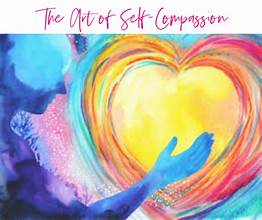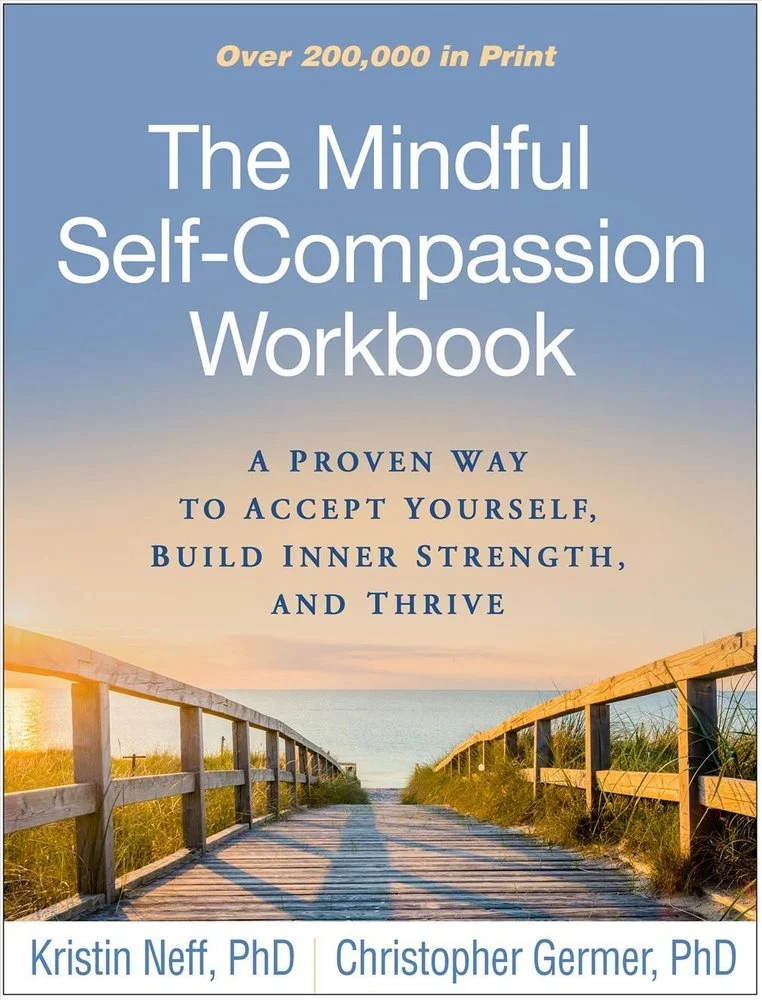Mindful Self-Compassion,Mental health is a topic that has gained significant attention in recent years, and for good reason. Our mental well-being plays a crucial role in our overall quality of life, affecting everything from our relationships to our ability to cope with stress. In the pursuit of better mental health, many individuals have turned to mindfulness and self-compassion as powerful tools for improvement. In this article, we will explore the basics of mindful self-compassion, its connection to mental health, and the numerous benefits it offers. Additionally, we will delve into specific ways in which mindful self-compassion can help with anxiety, depression, stress management, emotional regulation, resilience building, and improving relationships.
Contents
- 1 Understanding the Basics of Mindful Self-Compassion
- 2 The Connection Between Mindful Self-Compassion and Mental Health
- 3 The Benefits of Practicing Mindful Self-Compassion
- 4 How Mindful Self-Compassion Can Help with Anxiety and Depression
- 5 The Role of Mindful Self-Compassion in Managing Stress
- 6 Mindful Self and Emotional Regulation
- 7 The Importance of Mindful Self-Compassion in Building Resilience
- 8 Mindful Self-Compassion and Improved Relationships
- 9 How to Incorporate Mindful Self-Compassion into Your Daily Life
- 10 The Science Behind Self-Compassion: Research and Evidence
- 11 Overcoming Common Obstacles to Practicing Mindful
- 12 FAQs
Key Takeaways
- Mindful self-compassion can improve mental health by promoting self-kindness, common humanity, and mindfulness.
- Practicing mindful self-compassion can reduce symptoms of anxiety and depression and improve emotional regulation.
- Mindful self-compassion can help manage stress and build resilience, leading to improved relationships.
- Incorporating mindful self-compassion into daily life can be done through simple practices such as self-compassionate language and mindfulness meditation.
- Research shows that mindful self-compassion is effective in improving mental health outcomes, and common obstacles can be overcome with practice and support.
Understanding the Basics of Mindful Self-Compassion
Mindfulness can be defined as the practice of intentionally bringing one’s attention to the present moment without judgment. It involves cultivating a non-reactive awareness of one’s thoughts, emotions, and bodily sensations. On the other hand, self-compassion refers to treating oneself with kindness and understanding in times of difficulty or suffering. It involves recognizing that everyone experiences pain and suffering at some point and responding to oneself with empathy and care.
When combined, mindfulness and self-compassion create a powerful practice known as mindful self-compassion. This practice involves bringing mindful awareness to moments of suffering or difficulty and responding with self-compassion rather than self-criticism or judgment. By cultivating this mindset, individuals can develop a greater sense of acceptance and understanding towards themselves.
The Connection Between Mindful Self-Compassion and Mental Health
Research has shown a strong link between practicing mindful self-compassion and improved mental health outcomes. Studies have found that individuals who engage in regular mindful self-compassion practices experience reduced levels of anxiety and depression. This is because mindful self-compassion helps individuals develop a more compassionate attitude towards their own struggles, reducing self-critical thoughts and increasing self-acceptance.
Furthermore, mindful self-compassion has been found to enhance emotional well-being and increase resilience. By practicing self-compassion, individuals are better able to regulate their emotions, allowing them to respond to challenging situations with greater equanimity. This, in turn, leads to improved emotional regulation and a greater ability to bounce back from adversity.
The Benefits of Practicing Mindful Self-Compassion
| Benefits of Practicing Mindful Self-Compassion | Description |
| Reduced stress and anxiety | Practicing self-compassion can help reduce stress and anxiety by promoting feelings of calm and relaxation. |
| Improved emotional regulation | Self-compassion can help individuals regulate their emotions more effectively, leading to greater emotional stability and resilience. |
| Increased self-esteem | By practicing self-compassion, individuals can develop a more positive self-image and greater self-esteem. |
| Greater sense of well-being | Self-compassion can lead to a greater sense of overall well-being, including improved physical health and greater life satisfaction. |
| Improved relationships | Practicing self-compassion can also improve relationships with others by promoting greater empathy and understanding. |
The benefits of practicing mindful self-compassion are numerous and far-reaching. One of the key benefits is improved emotional regulation. By cultivating self-compassion, individuals develop a greater capacity to acknowledge and accept their emotions without judgment. This allows for a healthier and more balanced approach to dealing with difficult emotions.
Additionally, practicing mindful self-compassion has been shown to increase resilience. When faced with setbacks or challenges, individuals who have developed a compassionate mindset are better equipped to bounce back and adapt. They are able to view failures as opportunities for growth and learn from their experiences.
Furthermore, mindful self-compassion has a positive impact on relationships. By cultivating compassion for oneself, individuals are better able to extend that compassion towards others. This leads to improved empathy and understanding in relationships, fostering deeper connections and more satisfying interactions.

How Mindful Self-Compassion Can Help with Anxiety and Depression
Mindful self-compassion can be particularly beneficial for individuals struggling with anxiety and depression. Anxiety often stems from excessive worry about the future or fear of uncertainty. By practicing mindful self-compassion, individuals can learn to bring their attention back to the present moment and respond to their anxious thoughts with kindness and understanding.
Similarly, depression often involves negative self-talk and self-criticism. Mindful self-compassion helps individuals challenge these negative thought patterns by cultivating a more compassionate attitude towards themselves. By responding to their own suffering with kindness and care, individuals can break free from the cycle of self-criticism and develop a more positive outlook.
To address anxiety and depression, specific practices and techniques can be employed. One such technique is the loving-kindness meditation, where individuals direct well-wishes towards themselves and others. This practice helps cultivate feelings of compassion and connection, reducing feelings of isolation and promoting a sense of well-being.
The Role of Mindful Self-Compassion in Managing Stress
Stress is an inevitable part of life, but how we respond to it can make a significant difference in our overall well-being.Self-compassion plays a crucial role in managing stress by helping individuals develop resilience and prevent burnout.
By practicing self-compassion, individuals can acknowledge their own limitations and set realistic expectations for themselves. This prevents the accumulation of stress caused by excessive self-imposed pressure. Additionally,Self-compassion encourages individuals to take breaks and engage in self-care activities, promoting relaxation and rejuvenation.
To build resilience in the face of stress, specific practices and techniques can be employed. One such practice is the body scan meditation, where individuals bring their attention to different parts of their body, noticing any sensations or tension. This practice helps individuals become more aware of their physical and emotional state, allowing them to respond to stress more effectively.
Mindful Self and Emotional Regulation
Emotional regulation refers to the ability to manage and respond to emotions in a healthy and adaptive manner. Mindful self-compassion plays a vital role in improving emotional regulation by helping individuals develop a non-judgmental attitude towards their emotions.
By practicing self-compassion, individuals learn to accept their emotions without labeling them as good or bad. This allows for a more balanced approach to emotional experiences, reducing the tendency to suppress or avoid certain emotions. Instead, individuals can acknowledge their emotions with kindness and respond to them in a way that promotes well-being.
To improve emotional regulation, specific practices and techniques can be employed. One such technique is the RAIN meditation, which stands for Recognize, Accept, Investigate, and Nurture. This practice involves recognizing and accepting one’s emotions, investigating their underlying causes, and nurturing oneself with compassion.
The Importance of Mindful Self-Compassion in Building Resilience
Resilience refers to the ability to bounce back from adversity and adapt to challenging circumstances. Mindful self-compassion plays a crucial role in building resilience by helping individuals develop a compassionate mindset towards themselves.
By practicing self-compassion, individuals can view setbacks and failures as opportunities for growth rather than personal flaws. This mindset shift allows for a more positive and adaptive response to adversity. Additionally, self-compassion provides individuals with the support and encouragement needed to persevere in the face of challenges.
To build resilience, specific practices and techniques can be employed. One such practice is the gratitude journaling, where individuals write down things they are grateful for each day. This practice helps shift focus towards positive aspects of life, fostering a sense of resilience and gratitude.
Mindful Self-Compassion and Improved Relationships
Mindful self-compassion not only improves the relationship with oneself but also has a positive impact on relationships with others. By cultivating compassion for oneself, individuals are better able to extend that compassion towards others, leading to improved relationships.
When individuals practice self-compassion, they develop a greater capacity for empathy and understanding. This allows for more authentic connections with others, as individuals are able to truly listen and respond with kindness. Additionally, self-compassion helps individuals let go of judgment and criticism towards others, fostering a more harmonious and supportive environment.
To cultivate compassion for oneself and others, specific practices and techniques can be employed. One such practice is the loving-kindness meditation, where individuals direct well-wishes towards themselves and others. This practice helps cultivate feelings of compassion and connection, promoting healthier and more fulfilling relationships.
How to Incorporate Mindful Self-Compassion into Your Daily Life
Incorporating self-compassion into one’s daily life can be a transformative practice. To make it a habit, it is important to start small and gradually build up the practice. Here are some practical tips and strategies for incorporating mindful self-compassion into your daily routine:
1. Set aside dedicated time each day for and self-compassion practices.
2. Start with short meditation sessions and gradually increase the duration.
3. Use reminders or cues throughout the day to bring your attention back to the present moment.
4. Practice self-compassion in everyday situations by responding to yourself with kindness and understanding.
5. Seek support from a self-compassion group or community.
By consistently practicing self-compassion, it becomes easier to integrate it into daily life and experience its benefits.
The Science Behind Self-Compassion: Research and Evidence
The effectiveness of mindful self-compassion is supported by a growing body of research. Numerous studies have shown that practicing mindful self-compassion leads to improved mental health outcomes, including reduced levels of anxiety and depression.
For example, a study published in the Journal of Clinical Psychology found that individuals who participated in an eight-week mindful self-compassion program experienced significant reductions in symptoms of anxiety and depression. Another study published in the Journal of Counseling Psychology found that practicing self-compassion was associated with increased resilience and improved well-being.
These findings highlight the importance of incorporating mindful self-compassion into one’s daily life for improved mental health and well-being.
Overcoming Common Obstacles to Practicing Mindful
While the benefits of self-compassion are clear, there can be obstacles that hinder consistent practice. Common obstacles include lack of time, difficulty in maintaining motivation, and resistance to self-compassion.
To overcome these obstacles, it is important to prioritize self-care and make time for mindful self-compassion practices. Setting realistic goals and expectations can also help maintain motivation. Additionally, it is important to challenge any resistance to self-compassion by recognizing that it is a necessary and beneficial practice for mental well-being.
Staying committed to the practice of mindful self-compassion requires dedication and perseverance. By acknowledging and addressing common obstacles, individuals can overcome them and experience the transformative power of self-compassion.
In conclusion, mindful self-compassion is a powerful practice that has the potential to significantly improve mental health and well-being. By combining mindfulness and self-compassion, individuals can develop a greater sense of acceptance and understanding towards themselves, leading to reduced levels of anxiety and depression, improved emotional regulation, increased resilience, and improved relationships.
Incorporating mindful self-compassion into daily life requires commitment and practice. By setting aside dedicated time for mindfulness and self-compassion practices, individuals can gradually integrate them into their routine. Overcoming common obstacles such as lack of time or resistance to self-compassion is crucial for maintaining consistency.
The science behind mindful self-compassion is supported by research and evidence, highlighting its effectiveness in improving mental health outcomes. By incorporating mindful self-compassion into one’s daily life, individuals can experience the transformative power of compassion towards oneself and others. So why not give it a try? Start practicing mindful self-compassion today and embark on a journey towards improved mental health and well-being.

FAQs
What is mindful self-compassion?
Self-compassion is the practice of treating oneself with kindness, care, and understanding, especially during times of difficulty or suffering. It involves being aware of one’s thoughts and emotions without judgment and responding to oneself with warmth and empathy.
What are the benefits of practicing mindful self-compassion?
Research has shown that practicing mindful can improve mental health by reducing symptoms of anxiety, depression, and stress. It can also increase resilience, self-esteem, and overall well-being.
How is mindful self-compassion different from self-esteem?
Self-esteem is based on one’s evaluation of oneself, while mindful self-compassion is focused on treating oneself with kindness and understanding, regardless of one’s evaluation of oneself. Emphasizes the importance of acknowledging and accepting one’s flaws and imperfections, rather than striving for perfection or high self-esteem.
How can one practice mindful self-compassion?
There are various ways to practice self-compassion, including meditation, journaling, and self-reflection. One can also practice self-compassion in daily life by treating oneself with kindness and understanding, and by reframing negative self-talk into more positive and compassionate self-talk.
Is mindful self-compassion a form of therapy?
Mindful self-compassion is not a form of therapy, but it can be used as a complementary practice to therapy or as a self-help tool for improving mental health. It is a skill that can be learned and practiced by anyone, regardless of whether they are in therapy or not.
To Read More About Mindful self-compassion
To Read About Guided muscle relaxation











